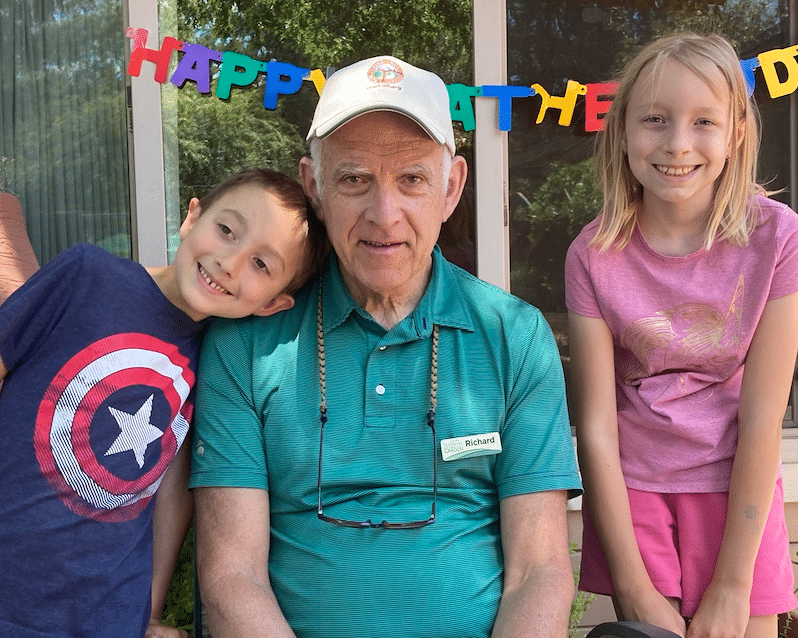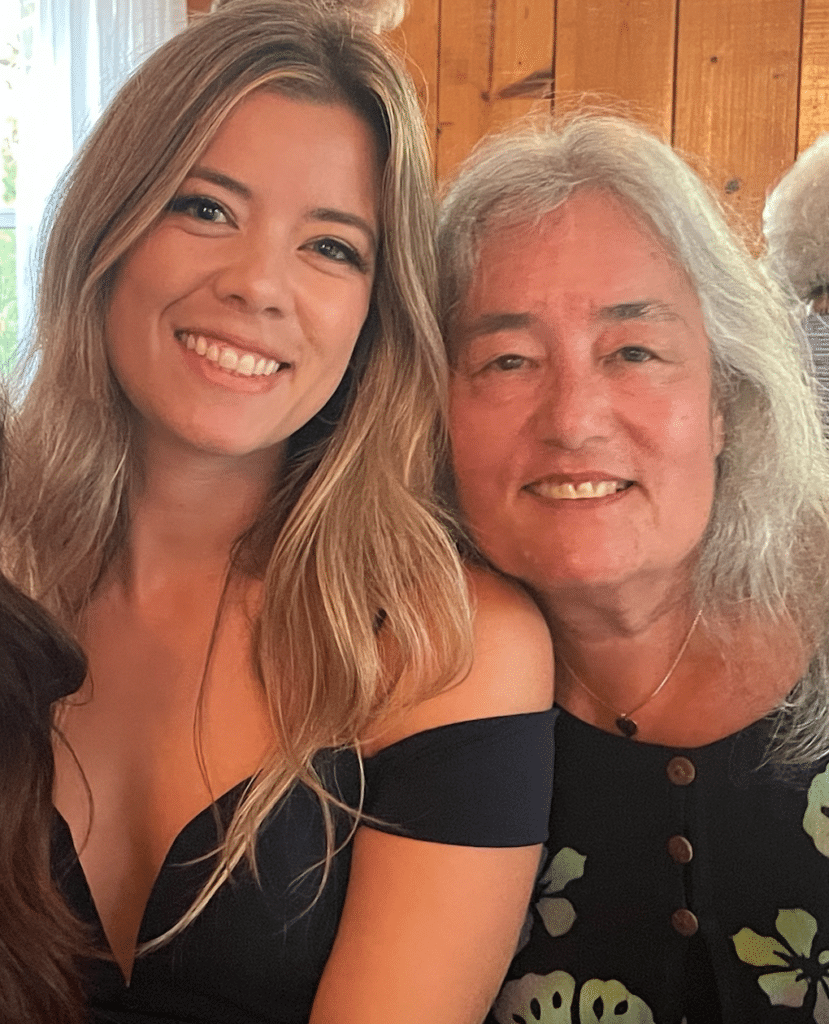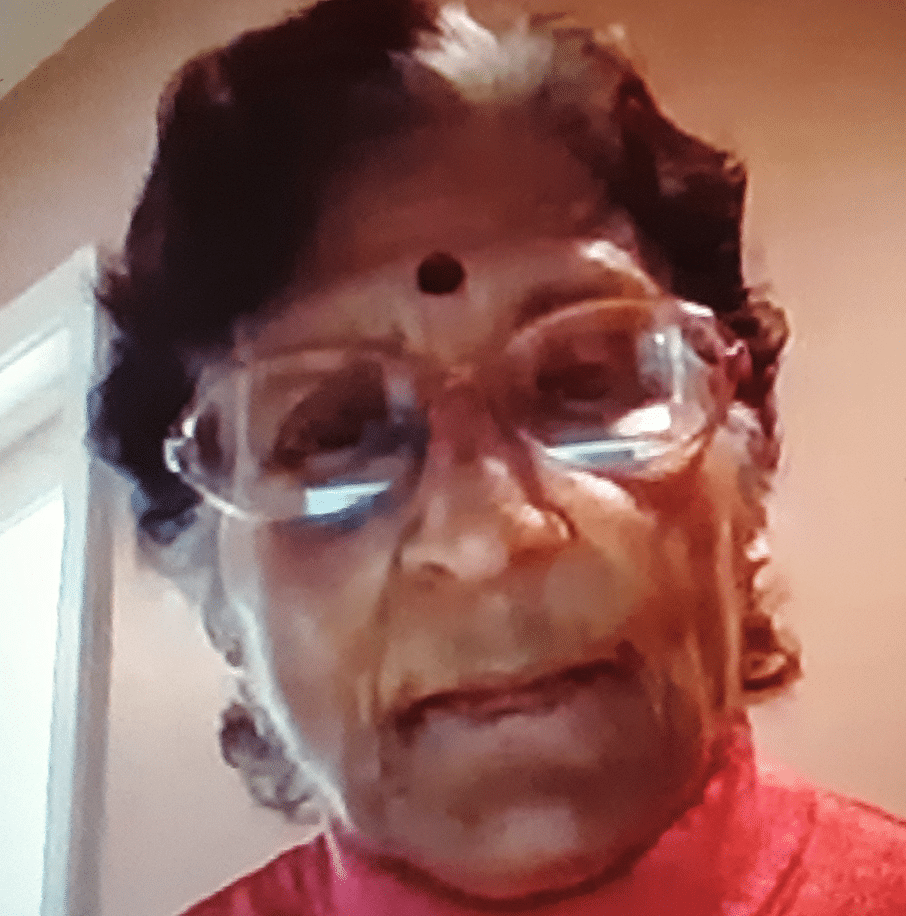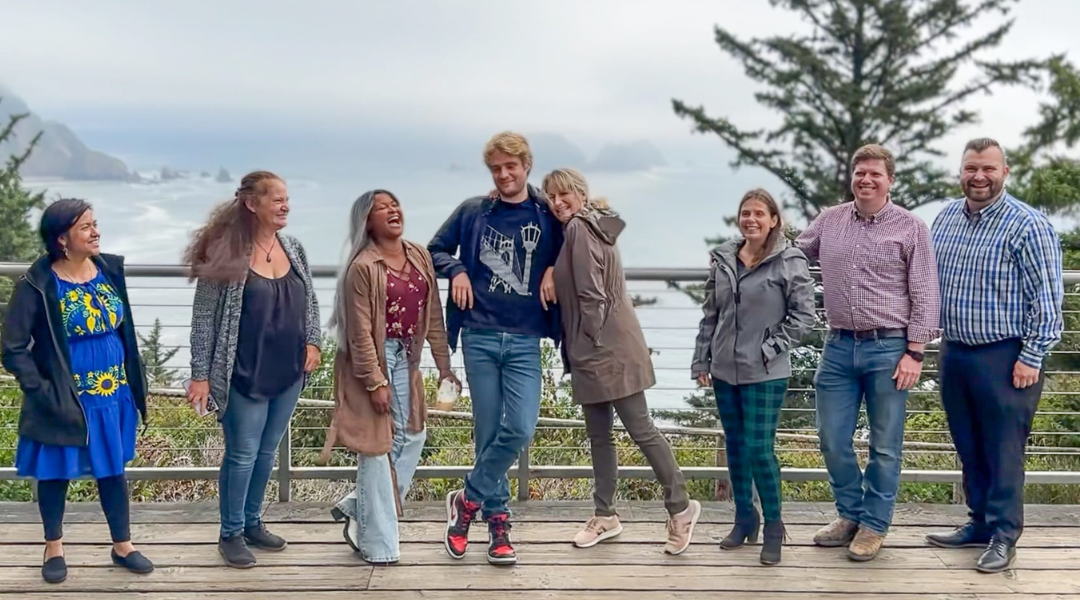In 2021, Encore.org partnered with AmeriCorps Seniors and California Volunteers to pilot the Encore Intergenerational Vaccine Corps, bringing retired medical professionals together with non-medical volunteers of all ages to boost vaccination rates at health centers in low-income communities throughout the San Francisco Bay Area.
The retired doctors have vaccinated thousands of people while enjoying the chance to use their skills, engage across generations and help others. Learn more about their experiences, in the words of four volunteers, below.
Gail Martin, M.D.
 I retired last year from my job as a family physician, but after taking a little breather I really wanted to get back to doing some clinical work and giving back to the community. I was drawn to the volunteer opportunity at La Clinica because I love Spanish and Spanish-speaking people and cultures. And the vaccination effort is very timely and urgent.
I retired last year from my job as a family physician, but after taking a little breather I really wanted to get back to doing some clinical work and giving back to the community. I was drawn to the volunteer opportunity at La Clinica because I love Spanish and Spanish-speaking people and cultures. And the vaccination effort is very timely and urgent.
I started in May and I’ve been giving the vaccine one day a week. It’s fun. It’s an outdoor venue and all these wonderful people are coming to get vaccinated and they’re bringing their kids and sometimes they have Latin music playing. It’s really well-organized and we’re getting a lot of people through in a limited time. I enjoy talking with the other volunteers.
A lot of them are younger and trying to enter healthcare professions — medical school or nursing school — and they’re getting experience. A lot of them are bilingual. Then there’s the older people like myself, retired nurses and doctors doing the clinical work and other retired people doing the administrative work. Everyone is really committed. Whatever the life stage, the motivation is pure. It’s really neat.
This is completely different from what I did in my career, but I just feel like you have to donate whatever skills you have and step up to the plate. Plus, as a retired person, it gives me a little bit of structure in my life, keeps me connected to clinical medicine, and it feels good to be helping a little bit.
Richard Pastcan, M.D.
 I was a pediatrician at Kaiser in Napa for 32 years. When I retired in 2008, I felt kind of purposeless so I started working part-time at a local center called OLE Health. I did that for eight years and, in 2016, I stopped doing medical things.
I was a pediatrician at Kaiser in Napa for 32 years. When I retired in 2008, I felt kind of purposeless so I started working part-time at a local center called OLE Health. I did that for eight years and, in 2016, I stopped doing medical things.
I first heard about the opportunity to help with vaccination through a newsletter Kaiser sends out to retired doctors. At the time, the virus was really rampant and you’d see in the news how hospitals were overwhelmed. I thought, well, I can still do something here.
I’ve done a mixture of things over the past several months. I’ve been an observer or consultant, monitoring people after the vaccination to see if they’re having a reaction or answering questions they might have. Like, if they have an allergy to something, I would talk to them, and make sure it’s safe for them to get the vaccine. That kind of thing.
And I’ve given the vaccine, too. I most enjoy that, because you’re dealing directly with a person and it’s just the physical act where you’re hands-on and doing something medically.
There’s a real mix of ages. The younger people are usually the ones working in the clinic or directing people. There are also a few college-aged women who volunteered to canvas with a group of us one day. We went door-to-door in Richmond, passing out fliers and giving people information about an upcoming vaccination event at the clinic.
It’s a nice feeling, that we’re all in this together.
Lynne Hollison, M.D.
 I’m a retired OB-GYN and for the past three years I haven’t been doing much in medicine. But as I watched what was happening during the pandemic and saw how devastating this disease is, I thought whatever could be done to help to get this under control, I would try to do.
I’m a retired OB-GYN and for the past three years I haven’t been doing much in medicine. But as I watched what was happening during the pandemic and saw how devastating this disease is, I thought whatever could be done to help to get this under control, I would try to do.
I was very interested in working in Solano County because, of all the counties in the Bay Area, it’s one that’s pretty underserved. A lot of people that work in the surrounding counties live in Solano County because they can’t afford to live in other areas.
I started volunteering once a week at OLE Health, working alongside a number of younger medical assistants and learning about what drives them and why they’re choosing this career path.
I absolutely look forward to it. Hey, I’m going to the clinic today and hopefully we’re going to vaccinate 100 people. I thank the people who come in. I’m just glad they showed up. I really truly believe this is going to be the way out of this.
We’re seeing a lot of people come in because of the Delta variant. One young man came in who had been in the hospital and was very ill. Another dad and daughter came in, and his wife had been in the hospital and was back home but on oxygen and still struggling. They wanted their vaccines.
I like that it gets me out and doing something different. If you do medicine for 30+ years, it becomes a part of your life, and you miss the people you work with and working with patients. This is a way to get back into it but still feel retired. The schedule is flexible if something comes up.
When I walk away from the vaccine clinic, the way things are going at the moment, I am hopeful. People are getting it. They’re understanding the importance of it, and it’s clear the message is getting through. If you weigh your concerns with the vaccine against what a Covid infection can do to you, it’s a no-brainer.
Sulochina Lulla, M.D.
 I was a Kaiser physician for 40 years. I started as a pediatric pulmonary specialist and then I became focused on allergy and immunology. I retired in 2018 when I was 76 years old, but I renewed my license for four more years. I want to keep my brain stimulated even though my body is starting to give me a little trouble.
I was a Kaiser physician for 40 years. I started as a pediatric pulmonary specialist and then I became focused on allergy and immunology. I retired in 2018 when I was 76 years old, but I renewed my license for four more years. I want to keep my brain stimulated even though my body is starting to give me a little trouble.
I’m always looking for good opportunities to volunteer and, if it’s something with a medical base, that’s up my alley. I was born in India and raised as a Hindu, and I’ve been trying to get an official credential as a Hindu chaplain, finishing up my 800 hours of chaplaincy work in the hospital. Then I found out about the Vaccine Corps volunteer opportunity through a former colleague, and I started going to whichever clinic they needed me at.
I don’t physically vaccinate. I’m there in case someone has a reaction. Usually it’s something mild, like a patient might feel dizzy or have a headache. We haven’t had a major bad reaction.
I’m interacting with the nurses and other volunteers. They’re very dedicated, community-oriented people and a lot of them speak Spanish. I don’t think they care about my age — it’s more about a person’s knowledge base that’s more important and that you’re there to help. I’m one of the crowd and I’m willing to do whatever is needed. If the floor needs sweeping, I will do that.
Summary
The Encore Intergenerational Vaccine Corps was a pilot program designed to help develop best practices in intergenerational service.





 I retired last year from my job as a family physician, but after taking a little breather I really wanted to get back to doing some clinical work and giving back to the community. I was drawn to the volunteer opportunity at La Clinica because I love Spanish and Spanish-speaking people and cultures. And the vaccination effort is very timely and urgent.
I retired last year from my job as a family physician, but after taking a little breather I really wanted to get back to doing some clinical work and giving back to the community. I was drawn to the volunteer opportunity at La Clinica because I love Spanish and Spanish-speaking people and cultures. And the vaccination effort is very timely and urgent. I was a pediatrician at Kaiser in Napa for 32 years. When I retired in 2008, I felt kind of purposeless so I started working part-time at a local center called OLE Health. I did that for eight years and, in 2016, I stopped doing medical things.
I was a pediatrician at Kaiser in Napa for 32 years. When I retired in 2008, I felt kind of purposeless so I started working part-time at a local center called OLE Health. I did that for eight years and, in 2016, I stopped doing medical things. I’m a retired OB-GYN and for the past three years I haven’t been doing much in medicine. But as I watched what was happening during the pandemic and saw how devastating this disease is, I thought whatever could be done to help to get this under control, I would try to do.
I’m a retired OB-GYN and for the past three years I haven’t been doing much in medicine. But as I watched what was happening during the pandemic and saw how devastating this disease is, I thought whatever could be done to help to get this under control, I would try to do. I was a Kaiser physician for 40 years. I started as a pediatric pulmonary specialist and then I became focused on allergy and immunology. I retired in 2018 when I was 76 years old, but I renewed my license for four more years. I want to keep my brain stimulated even though my body is starting to give me a little trouble.
I was a Kaiser physician for 40 years. I started as a pediatric pulmonary specialist and then I became focused on allergy and immunology. I retired in 2018 when I was 76 years old, but I renewed my license for four more years. I want to keep my brain stimulated even though my body is starting to give me a little trouble.